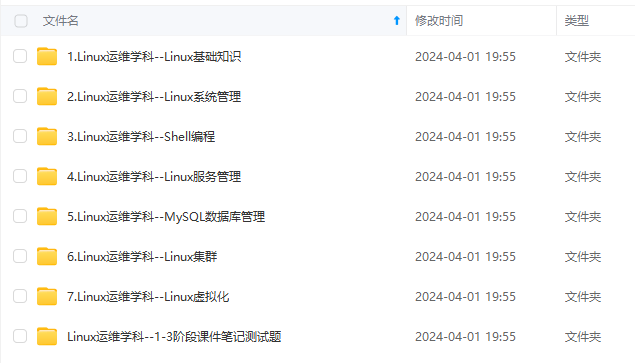k8s部署kong(第三版)
kong新版采用无db模式,将所有的配置,通过k8s资源的形式,存储到etcd里面。
k8s部署kong(第三版)
kong新版采用无db模式,将所有的配置,通过k8s资源的形式,存储到etcd里面
1、安装kong
创建命名空间
kubectl create namespace kong
部署
wget https://raw.githubusercontent.com/Kong/kubernetes-ingress-controller/v2.9.3/deploy/single/all-in-one-dbless.yaml
先修改kong-proxy的service类型为nodeport,当然也可以采用LoadBalancer,修改all-in-one-dbless.yaml,找到kong-proxy的service那一段
apiVersion: v1
kind: Service
metadata:
annotations:
service.beta.kubernetes.io/aws-load-balancer-backend-protocol: tcp
service.beta.kubernetes.io/aws-load-balancer-type: nlb
name: kong-proxy
namespace: kong
spec:
ports:
- name: proxy
port: 80
protocol: TCP
targetPort: 8000
- name: proxy-ssl
port: 443
protocol: TCP
targetPort: 8443
selector:
app: proxy-kong
# type: LoadBalancer
type: NodePort
然后添加9080端口,下载下来的文件默认只支持http和https协议的服务访问,我们要添加grpc访问的端口
找到proxy-kong的deploy,做如下修改
containers:
- env:
- name: KONG_PROXY_LISTEN
value: 0.0.0.0:8000 reuseport backlog=16384, 0.0.0.0:9080 http2 reuseport backlog=16384, 0.0.0.0:8443 http2 ssl reuseport
backlog=16384
- name: KONG_PORT_MAPS
value: 80:8000, 9080:9080, 443:8443
主要是添加了0.0.0.0:9080 http2 reuseport backlog=16384,这一段和9080:9080, 这一段
再找到port,做如下修改
name: proxy
ports:
- containerPort: 8000
name: proxy
protocol: TCP
- containerPort: 8443
name: proxy-ssl
protocol: TCP
- containerPort: 8100
name: metrics
protocol: TCP
- containerPort: 9080
name: grpc
protocol: TCP
主要是添加了最后三行
再找到kong-proxy的service,做如下修改
spec:
ports:
- name: proxy
port: 80
protocol: TCP
targetPort: 8000
- name: proxy-ssl
port: 443
protocol: TCP
targetPort: 8443
- name: grpc
port: 9080
protocol: TCP
targetPort: 9080
也是添加最后四行,这样修改了之后就支持grpc的调用(如果开发那边是用kong做grpc的调用网关,有的不用网关,用注册中心consul、etcd)
然后创建
kubectl apply -f all-in-one-dbless.yaml
查看
kubectl get all -n kong
NAME READY STATUS RESTARTS AGE
pod/ingress-kong-66ffc7f58-ffqgt 1/1 Running 0 60m
pod/proxy-kong-5b968f958f-87nrq 1/1 Running 0 60m
pod/proxy-kong-5b968f958f-mrsbv 1/1 Running 0 60m
NAME TYPE CLUSTER-IP EXTERNAL-IP PORT(S) AGE
service/kong-admin ClusterIP None <none> 8444/TCP 60m
service/kong-proxy NodePort 192.168.252.190 <none> 80:32248/TCP,443:30683/TCP 60m
service/kong-validation-webhook ClusterIP 192.168.254.177 <none> 443/TCP 60m
NAME READY UP-TO-DATE AVAILABLE AGE
deployment.apps/ingress-kong 1/1 1 1 60m
deployment.apps/proxy-kong 2/2 2 2 60m
NAME DESIRED CURRENT READY AGE
replicaset.apps/ingress-kong-66ffc7f58 1 1 1 60m
replicaset.apps/proxy-kong-5b968f958f 2 2 2 60m
2、创建ingress
先说一下整个请求流程:
通过cs.test.com域名解析到负载均衡的ip,然后在负载均衡的监听器里面配置k8s节点的ip加kong-proxy的service端口,也就是我们前面改的nodeport类型那个service,ingressclass让Ingress和Ingress Controller(kong-proxy是Ingress Controller的代理进程)绑定在一起,然后Ingress Controller根据域名匹配到kong-ing这个ingress,再根据uri匹配到对应的后端service,以此来实现流量的调度
Ingress Class是一个Kubernetes对象,它的作用是管理Ingress和Ingress Controller的概念,方便我们分组路由规则,降低维护成本。Ingress Class让Ingress和Ingress Controller之间的绑定关系变得更加灵活,可以将多个Ingress对象分组到同一个Ingress Class中,每个Ingress Class可以使用不同的Ingress Controller来处理它所管理的Ingress对象。简而言之,Ingress Class的作用是解除Ingress和Ingress Controller的强绑定关系,让Kubernetes用户可以转向管理Ingress Class,用它来定义不同的业务逻辑分组,简化Ingress规则的复杂度。
kong-proxy是Kong Ingress Controller中的代理进程,用于处理流量转发和路由功能。而Ingress Controller是Kubernetes中负责管理Ingress资源和控制集群进出流量的组件。Kong Ingress Controller作为一种Ingress Controller,通过监听Kubernetes中的Ingress对象和自定义资源定义(CRDs),将Ingress规则转化为Kong代理服务的路由规则和插件配置,从而实现对Kubernetes集群进出流量的管理和控制。因此,kong-proxy是Kong Ingress Controller的一部分,负责实现Ingress Controller的功能。
vim cs-test-com-ingress.yaml
apiVersion: networking.k8s.io/v1
kind: Ingress
metadata:
name: kong-ing
namespace: dev
spec:
ingressClassName: kong
rules:
- host: cs.test.com
http:
paths:
- path: /customer
pathType: Prefix
backend:
service:
name: customer-service
port:
number: 20008
后面的deploy和service依赖于我自己的业务,如果你想测试,可以直接启动一个nginx的deploy和service,然后把上面ingress的path路径改成/,端口也改成80,效果是一样的
customer-deploy.yaml
apiVersion: apps/v1
kind: Deployment
metadata:
name: customer
labels:
app: customer
spec:
selector:
matchLabels:
app: customer
replicas: 1
strategy:
type: RollingUpdate
rollingUpdate:
maxUnavailable: 0
maxSurge: 1
# minReadySeconds: 30
template:
metadata:
labels:
app: customer
tag: kobe
spec:
containers:
- name: customer
image: ccr.ccs.tencentyun.com/chens/kobe:jenkins-kobe-customer-dev-4-1b2fe90f6
imagePullPolicy: IfNotPresent
volumeMounts: # 将configmap挂载到目录
- name: config-kobe
mountPath: /biz-code/configs/
env:
- name: TZ
value: "Asia/Shanghai"
- name: LANG
value: C.UTF-8
- name: LC_ALL
value: C.UTF-8
livenessProbe:
failureThreshold: 2
initialDelaySeconds: 30
periodSeconds: 10
successThreshold: 1
grpc:
port: 21008
timeoutSeconds: 2
ports:
- containerPort: 20008
protocol: TCP
- containerPort: 21008
protocol: TCP
readinessProbe:
failureThreshold: 2
initialDelaySeconds: 30
periodSeconds: 10
successThreshold: 1
httpGet:
path: /Health
port: 20008
scheme: HTTP
timeoutSeconds: 2
resources:
limits:
cpu: 194m
memory: 170Mi
requests:
cpu: 80m
memory: 50Mi
dnsPolicy: ClusterFirst
imagePullSecrets:
- name: qcloudregistrykey
restartPolicy: Always
securityContext: {}
serviceAccountName: default
volumes: # 引用configmap
- name: config-kobe
configMap:
name: config-kobe
customer-service.yaml
apiVersion: v1
kind: Service
metadata:
labels:
app: customer
name: customer-service
namespace: dev
spec:
ports:
- name: http
protocol: TCP
port: 20008
targetPort: 20008
- name: grpc
protocol: TCP
port: 21008
targetPort: 21008
selector:
app: customer
sessionAffinity: None
type: NodePort
这种安装方式比以前简化了不少,但是里面的原理相对更复杂一点,需要去理解他们的工作流程
在一个k8s集群里面,创建多个kong(如下文章还有些问题,一个集群建议只部署一个kong,然后通过多个ingress去代理不同的域名,也就是不同的环境)
比如说你的开发、测试、验收在同一个k8s集群,以不同的命名空间来做区分,比如说按照上面的方式已经在dev命名空间部署了一个kong,而在部署dev命名空间kong的时候,已经创建了很多集群相关的角色或者是权限,这时候会有些冲突,那么可以通过如下步骤,在多个命名空间下创建多个kong
1、下载文件
wget https://raw.githubusercontent.com/Kong/kubernetes-ingress-controller/v2.9.3/deploy/single/all-in-one-dbless.yaml
2、修改文件
找到其中ClusterRoleBinding的地方,然后在subjects中添加对应环境的ServiceAccount,总共有三个地方,每个地方添加你需要的命名空间账号
---
apiVersion: rbac.authorization.k8s.io/v1
kind: ClusterRoleBinding
metadata:
name: kong-ingress
roleRef:
apiGroup: rbac.authorization.k8s.io
kind: ClusterRole
name: kong-ingress
subjects:
- kind: ServiceAccount
name: kong-serviceaccount
namespace: kong
- kind: ServiceAccount
name: kong-serviceaccount
namespace: test
---
apiVersion: rbac.authorization.k8s.io/v1
kind: ClusterRoleBinding
metadata:
name: kong-ingress-gateway
roleRef:
apiGroup: rbac.authorization.k8s.io
kind: ClusterRole
name: kong-ingress-gateway
subjects:
- kind: ServiceAccount
name: kong-serviceaccount
namespace: kong
- kind: ServiceAccount
name: kong-serviceaccount
namespace: test
---
apiVersion: rbac.authorization.k8s.io/v1
kind: ClusterRoleBinding
metadata:
name: kong-ingress-knative
roleRef:
apiGroup: rbac.authorization.k8s.io
kind: ClusterRole
name: kong-ingress-knative
subjects:
- kind: ServiceAccount
name: kong-serviceaccount
namespace: kong
- kind: ServiceAccount
name: kong-serviceaccount
namespace: test
3、部署
先部署all-in-one-dbless.yaml
kubectl create -f all-in-one-dbless.yaml
这时候会在kong命名空间下创建一个kong
kubectl get all -n kong
NAME READY STATUS RESTARTS AGE
pod/ingress-kong-66ffc7f58-x4l2j 1/1 Running 0 8m42s
pod/proxy-kong-5b968f958f-hz6tl 1/1 Running 0 8m42s
pod/proxy-kong-5b968f958f-sqxhd 1/1 Running 0 8m42s
NAME TYPE CLUSTER-IP EXTERNAL-IP PORT(S) AGE
service/kong-admin ClusterIP None <none> 8444/TCP 8m42s
service/kong-proxy NodePort 192.168.253.97 <none> 80:31231/TCP,443:30508/TCP 8m42s
service/kong-validation-webhook ClusterIP 192.168.253.22 <none> 443/TCP 8m42s
NAME READY UP-TO-DATE AVAILABLE AGE
deployment.apps/ingress-kong 1/1 1 1 8m42s
deployment.apps/proxy-kong 2/2 2 2 8m42s
NAME DESIRED CURRENT READY AGE
replicaset.apps/ingress-kong-66ffc7f58 1 1 1 8m42s
replicaset.apps/proxy-kong-5b968f958f 2 2 2 8m42s
然后根据如下文件,即可在test命名空间部署一个新的kong(这个文件其实就是all-in-one-dbless.yaml里面截取后半段)
test-all-in-one-dbless.yaml
apiVersion: v1
kind: ServiceAccount
metadata:
name: kong-serviceaccount
namespace: test
---
apiVersion: rbac.authorization.k8s.io/v1
kind: Role
metadata:
name: kong-leader-election
namespace: test
rules:
- apiGroups:
- ""
- coordination.k8s.io
resources:
- configmaps
- leases
verbs:
- get
- list
- watch
- create
- update
- patch
- delete
- apiGroups:
- ""
resources:
- events
verbs:
- create
- patch
---
apiVersion: rbac.authorization.k8s.io/v1
kind: RoleBinding
metadata:
name: kong-leader-election
namespace: test
roleRef:
apiGroup: rbac.authorization.k8s.io
kind: Role
name: kong-leader-election
subjects:
- kind: ServiceAccount
name: kong-serviceaccount
namespace: test
---
apiVersion: v1
kind: Service
metadata:
name: kong-admin
namespace: test
spec:
clusterIP: None
ports:
- name: admin
port: 8444
protocol: TCP
targetPort: 8444
selector:
app: proxy-kong
---
apiVersion: v1
kind: Service
metadata:
annotations:
service.beta.kubernetes.io/aws-load-balancer-backend-protocol: tcp
service.beta.kubernetes.io/aws-load-balancer-type: nlb
name: kong-proxy
namespace: test
spec:
ports:
- name: proxy
port: 80
protocol: TCP
targetPort: 8000
- name: proxy-ssl
port: 443
protocol: TCP
targetPort: 8443
selector:
app: proxy-kong
# type: LoadBalancer
type: NodePort
---
apiVersion: v1
kind: Service
metadata:
name: kong-validation-webhook
namespace: test
spec:
ports:
- name: webhook
port: 443
protocol: TCP
targetPort: 8080
selector:
app: ingress-kong
---
apiVersion: apps/v1
kind: Deployment
metadata:
labels:
app: ingress-kong
name: ingress-kong
namespace: test
spec:
replicas: 1
selector:
matchLabels:
app: ingress-kong
template:
metadata:
annotations:
kuma.io/gateway: enabled
kuma.io/service-account-token-volume: kong-serviceaccount-token
traffic.sidecar.istio.io/includeInboundPorts: ""
labels:
app: ingress-kong
spec:
automountServiceAccountToken: false
containers:
- env:
- name: CONTROLLER_KONG_ADMIN_SVC
value: kong/kong-admin
- name: CONTROLLER_KONG_ADMIN_TLS_SKIP_VERIFY
value: "true"
- name: CONTROLLER_PUBLISH_SERVICE
value: kong/kong-proxy
- name: POD_NAME
valueFrom:
fieldRef:
apiVersion: v1
fieldPath: metadata.name
- name: POD_NAMESPACE
valueFrom:
fieldRef:
apiVersion: v1
fieldPath: metadata.namespace
image: kong/kubernetes-ingress-controller:2.9.3
imagePullPolicy: IfNotPresent
livenessProbe:
failureThreshold: 3
httpGet:
path: /healthz
port: 10254
scheme: HTTP
initialDelaySeconds: 5
periodSeconds: 10
successThreshold: 1
timeoutSeconds: 1
name: ingress-controller
ports:
- containerPort: 8080
name: webhook
protocol: TCP
- containerPort: 10255
name: cmetrics
protocol: TCP
readinessProbe:
failureThreshold: 3
httpGet:
path: /readyz
port: 10254
scheme: HTTP
initialDelaySeconds: 5
periodSeconds: 10
successThreshold: 1
timeoutSeconds: 1
volumeMounts:
- mountPath: /var/run/secrets/kubernetes.io/serviceaccount
name: kong-serviceaccount-token
readOnly: true
serviceAccountName: kong-serviceaccount
volumes:
- name: kong-serviceaccount-token
projected:
sources:
- serviceAccountToken:
expirationSeconds: 3607
path: token
- configMap:
items:
- key: ca.crt
path: ca.crt
name: kube-root-ca.crt
- downwardAPI:
items:
- fieldRef:
apiVersion: v1
fieldPath: metadata.namespace
path: namespace
---
apiVersion: apps/v1
kind: Deployment
metadata:
labels:
app: proxy-kong
name: proxy-kong
namespace: test
spec:
replicas: 2
selector:
matchLabels:
app: proxy-kong
template:
metadata:
annotations:
kuma.io/gateway: enabled
kuma.io/service-account-token-volume: kong-serviceaccount-token
traffic.sidecar.istio.io/includeInboundPorts: ""
labels:
app: proxy-kong
spec:
automountServiceAccountToken: false
containers:
- env:
- name: KONG_PROXY_LISTEN
value: 0.0.0.0:8000 reuseport backlog=16384, 0.0.0.0:8443 http2 ssl reuseport
backlog=16384
- name: KONG_PORT_MAPS
value: 80:8000, 443:8443
- name: KONG_ADMIN_LISTEN
value: 0.0.0.0:8444 http2 ssl reuseport backlog=16384
- name: KONG_STATUS_LISTEN
value: 0.0.0.0:8100
- name: KONG_DATABASE
value: "off"
- name: KONG_NGINX_WORKER_PROCESSES
value: "2"
- name: KONG_KIC
value: "on"
- name: KONG_ADMIN_ACCESS_LOG
value: /dev/stdout
- name: KONG_ADMIN_ERROR_LOG
value: /dev/stderr
- name: KONG_PROXY_ERROR_LOG
value: /dev/stderr
- name: KONG_ROUTER_FLAVOR
value: traditional
image: kong:3.2
lifecycle:
preStop:
exec:
command:
- /bin/bash
- -c
- kong quit
livenessProbe:
failureThreshold: 3
httpGet:
path: /status
port: 8100
scheme: HTTP
initialDelaySeconds: 5
periodSeconds: 10
successThreshold: 1
timeoutSeconds: 1
name: proxy
ports:
- containerPort: 8000
name: proxy
protocol: TCP
- containerPort: 8443
name: proxy-ssl
protocol: TCP
- containerPort: 8100
name: metrics
protocol: TCP
readinessProbe:
failureThreshold: 3
httpGet:
path: /status
port: 8100
scheme: HTTP
initialDelaySeconds: 5
periodSeconds: 10
successThreshold: 1
timeoutSeconds: 1
serviceAccountName: kong-serviceaccount
volumes:
- name: kong-serviceaccount-token
projected:
sources:
- serviceAccountToken:
expirationSeconds: 3607
path: token
- configMap:
items:
- key: ca.crt
path: ca.crt
name: kube-root-ca.crt
- downwardAPI:
items:
- fieldRef:
apiVersion: v1
fieldPath: metadata.namespace
path: namespace
---
apiVersion: networking.k8s.io/v1
kind: IngressClass
metadata:
name: kong-test
spec:
controller: ingress-controllers.konghq.com/kong
3、查看
可以看到和kong命名空间下的kong是一样的,他们共享同样的集群角色
kubectl get all -n test
NAME READY STATUS RESTARTS AGE
pod/ingress-kong-66ffc7f58-8b8kk 1/1 Running 0 2m44s
pod/proxy-kong-5b968f958f-vg7nh 1/1 Running 0 2m44s
pod/proxy-kong-5b968f958f-zkww7 1/1 Running 0 2m44s
NAME TYPE CLUSTER-IP EXTERNAL-IP PORT(S) AGE
service/kong-admin ClusterIP None <none> 8444/TCP 2m44s
service/kong-proxy NodePort 192.168.254.246 <none> 80:30101/TCP,443:31093/TCP 2m44s
service/kong-validation-webhook ClusterIP 192.168.252.220 <none> 443/TCP 2m44s
NAME READY UP-TO-DATE AVAILABLE AGE
deployment.apps/ingress-kong 1/1 1 1 2m44s
deployment.apps/proxy-kong 2/2 2 2 2m44s
NAME DESIRED CURRENT READY AGE
replicaset.apps/ingress-kong-66ffc7f58 1 1 1 2m44s
replicaset.apps/proxy-kong-5b968f958f 2 2 2 2m44s
4、测试
测试就和上面一样,创建一个ingress,再创建一个deploy和service就可以了
更多推荐
 已为社区贡献24条内容
已为社区贡献24条内容









所有评论(0)